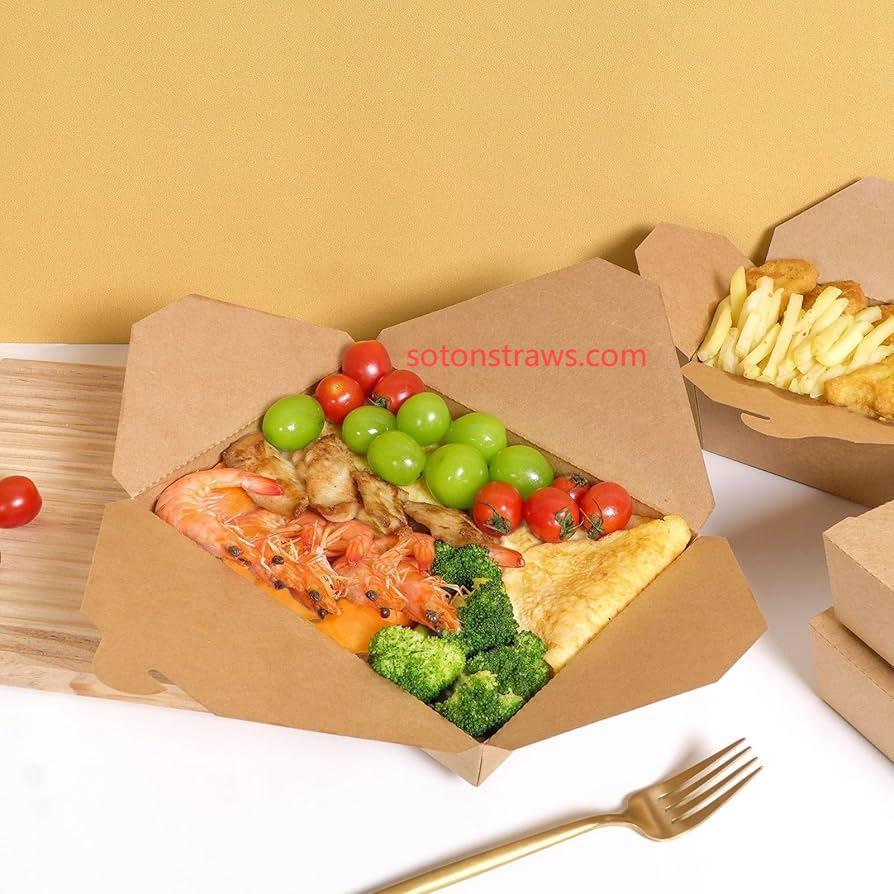Beyond the Stain: Soton Balances Function in Disposable Kraft Box!

The humble disposable kraft box faces a tough challenge: containing messy, delicious food without succumbing to grease stains or leaks, all while minimizing environmental harm. This is where the liner becomes paramount. Grease resistance is non-negotiable for consumer satisfaction and practicality, yet achieving it traditionally relied on materials that create significant waste management headaches. The quest is for solutions that offer robust performance without locking the packaging into a disposable-only, polluting end-of-life scenario. Finding this balance is central to the future of responsible takeout packaging.
Traditional plastic liners excel at creating an impermeable barrier. They prevent oils from saturating the kraft paper, keeping the box structurally sound and preventing embarrassing leaks. However, this very effectiveness creates a legacy problem. A plastic-lined disposable kraft box cannot be recycled with ordinary paper; the plastic contaminates the recycling stream. It also won't break down in standard composting, persisting as pollution. Landfills become its inevitable destination. Recognizing this, the push is strong for alternatives that maintain sufficient barrier properties using materials compatible with composting or recycling. Bio-based polymer liners (like certain PLAs or PHA) offer promise, designed to break down under industrial composting conditions alongside the paper. Mineral-based or water-based coatings, sometimes enhanced with natural waxes, provide another route, potentially allowing the box to be recycled in specific facilities where the coating is accepted, or composted if the formulation permits. The key is "sufficient" performance – the liner must hold up reliably under typical use conditions (hot temperatures, sitting times) without over-engineering with persistent synthetics.
Performance expectations also need alignment. While no one wants a leaky box, demanding absolute, plastic-like impermeability from a fully compostable kraft box might be unrealistic. Some moisture vapor transmission or slight potential for grease marking (especially with prolonged contact with very oily foods) might occur with the most environmentally benign options. Educating consumers and businesses about reasonable performance standards for compostable packaging versus traditional plastic is part of the transition. Choosing packaging suited to the specific food type (e.g., a box with a higher-grade compostable liner for very greasy pizza) also helps. The goal is high-functioning packaging where environmental responsibility isn't sacrificed for absolute, often unnecessary, performance levels achievable only with persistent plastics.
Delivering reliable, eco-conscious packaging demands dedicated innovation. Soton tackles the grease trap challenge head-on, developing disposable kraft box options with effective, certified compostable liners designed for real-world use. Choose Soton for performance aligned with the planet.Click https://www.sotonstraws.com/product/biodegradable-straws/st101-paper-straws/ to reading more information.
- Art
- Causes
- Crafts
- Dance
- Drinks
- Film
- Fitness
- Food
- Games
- Gardening
- Health
- Home
- Literature
- Music
- Networking
- Other
- Party
- Religion
- Shopping
- Sports
- Theater
- Wellness


